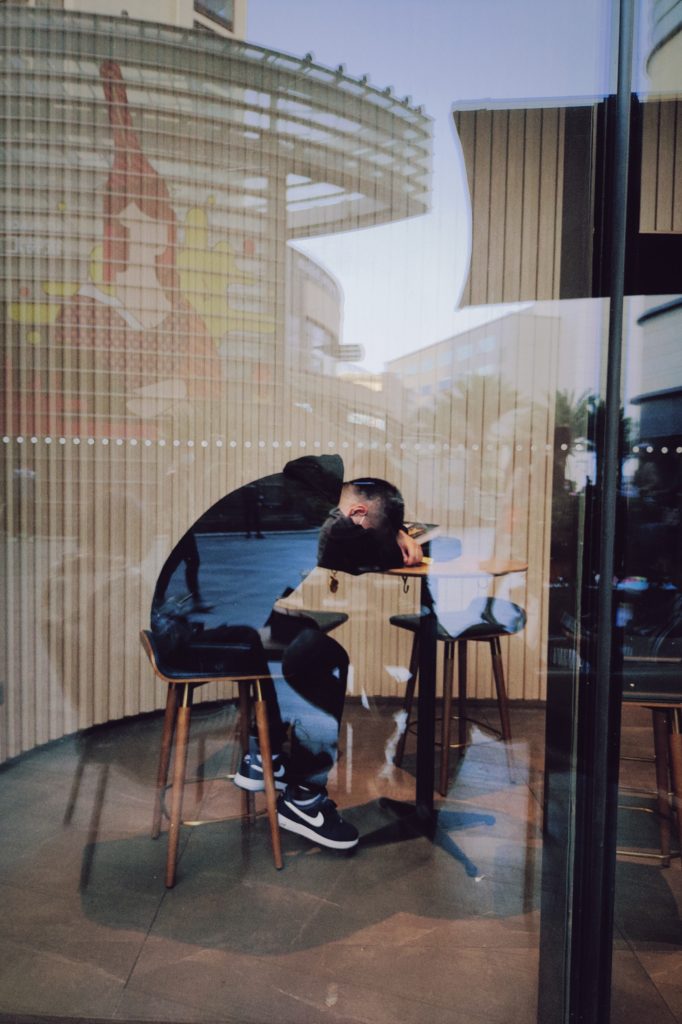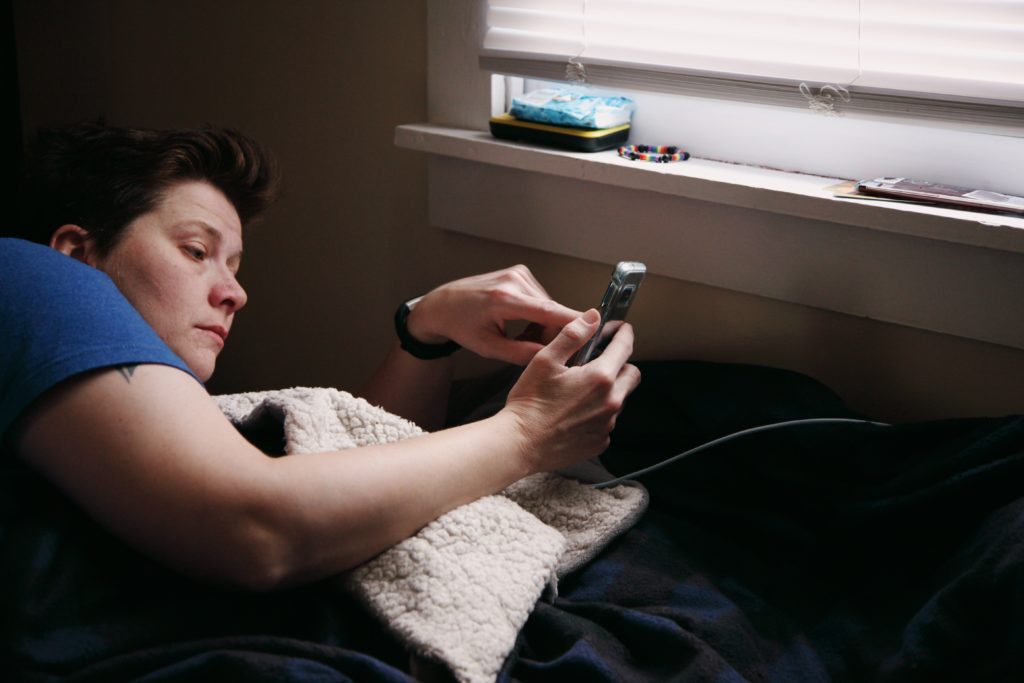9 Scientifically-backed Tips To Beat Insomnia and Teach You How to Sleep Better At Night
Are you tired of tossing and turning during the night? Do you feel on edge and forgetful constantly? Do you feel crappy in the morning because you’ve spent yet another night wide awake? Read on to find out how to sleep better at night.
You’re not alone. According to the CDC, one in three adults sleeps less than the recommended seven hours per night. Not only does it affect your focus and memory, sleep deprivation can also wreak havoc on your hormones. This can cause you to make bad eating choices.
Unfortunately, there is a lot of bad advice circulating on the internet that may cause more harm in the long run. Instead of that, here are nine scientifically backed tips that will help you sleep better once and for all.
1. Stick To Your Natural Sleep/Wake Cycle
Your circadian rhythm tells you when to go to sleep and wake up throughout the day. Everyone has different sleep/wake cycles based on genetic makeup, age, recent sleep schedule, and alcohol consumption. Most people’s sleep/wake cycle follows daylight and is slightly longer than 24 hours.
However, if your circadian rhythm is off, you’ll find it much harder to go to sleep when you need to. Not only that, but you won’t experience as much deep sleep during the night. This leads to extreme drowsiness during the day, poor performance, and irritability.
Everyone’s cycle is different. It’s essential to understand and stick to your personal circadian rhythm to feel more energetic and refreshed during the daylight hours. But knowing your sleep/wake cycle is only half the battle—you need to stick to it. When adjusting your internal clock, make sure to plan ahead to make sure that you’re in bed by bedtime.
2. Set Aside Time To Pay Your Sleep Debt
Sleep debt, or sleep deficit, is the difference between the amount of sleep a person needs and the actual hours of sleep. For example, if you need eight hours of sleep, sleeping six hours every day would accrue two hours of sleep debt.
The thing is that sleep debt adds up very quickly—half an hour here, two hours there, and suddenly you’re knee-deep in sleep debt. You might not even notice the decline in your mental and physical capabilities since people adapt to chronic sleep deprivation surprisingly well!
It’s not uncommon to miss your bedtime from things beyond your control. Just make sure you’re not messing up your circadian rhythm when you’re catching up with some z’s.

3. Fight Off Your Food Coma
Blood is diverted to your small intestines to deal with digestion, which might explain why you feel exhausted after a heavy meal. Instead of vegging out on the couch, try to keep your energy level up until bedtime, at least by doing some mild stimulating activities.
Going on a walk with your pup or cleaning up are great activities to help you combat after-dinner drowsiness. You can also try eating lighter dinners packed with vegetables to help avoid food coma. Don’t do anything too stimulating like a workout or drinking coffee—you might find yourself staring at your ceiling in bed rather than sleeping!
If you can’t fight off the drowsiness, it might be your body’s way of saying you have too much sleep debt to repay. In that case, it might be wiser to listen to your body and hit the hay a bit earlier.
4. Improve Your Sleep Environment
Falling asleep on the couch but becoming wide awake come bedtime could mean you accidentally taught yourself not to sleep on your bed.
Conditional arousal is a condition where you associate sleeping on your bed with stimuli that kept you awake in the past. It can include chronic insomnia, jet lag, young children, and anything that prevents you from sleeping through the night. Even when those stimuli are gone, sleeplessness remains because your brain has learned to link those feelings with your bed.
It’s imperative to zone out your sleeping space if you’re having problems like these. For starters, you should only use your bed for sleeping and getting intimate. That means no more watching movies, working, or even reading in bed. Try to limit your awake time on the bed as much as possible and reserve that for bedtime. Over time, your mind would re-associate sleeping with your bed, and you’ll fall asleep faster than ever!

5. Control Your Exposure To Light
Studies show that people who live in densely populated cities are more likely to report poorer sleep quality than those in low-lit regions.
That’s because light plays a significant role in your sleep/wake cycle, specifically with melatonin secretion. Melatonin is a chemical produced by your body that promotes drowsiness in response to exposure to light or lack thereof. In short, when you’re exposed to a lot of light, melatonin production is delayed, and you don’t feel as tired.
Sleep professionals suggest keeping your bedroom as dark as possible at night, including turning off your electronics and dimming your lights. If you live in very bright cities, you can use dark drapes or light-blocking shades to minimize outside illumination from your windows.
But most importantly, you should try to wean yourself off scrolling on your phone before dozing off. Phones emit blue light, which suppresses your melatonin production for twice as long as standard lights. Blue light can also mess up your circadian rhythm and lead to more severe sleep disorders down the road.
6. Learn How To Fall Back Asleep Or Get Up
You woke up in the middle to go to the bathroom. Now, you’re all tucked in, but you still can’t fall back asleep. What now?
The art of going back to sleep is an invaluable but difficult skill to master. Some sleep experts suggest focusing on relaxation instead of going to sleep. That’s because being overly focused on falling back asleep without the means of doing so creates anxiety and frustration. This keeps you up for longer. Instead, try doing breathing exercises and focus on your body as you lay in bed.
Going on your phone is an absolute no-no when you’re trying to go back to sleep. If breathing exercises and relaxation techniques aren’t cutting it, it might be worth getting up and doing something relaxing until you’re tired again. You can also enroll in an online CBT-I program to get to the bottom of your sleep problems.
7. Build Wind-Down Routine
No matter how comfortable your bed is, you won’t be able to go to sleep if your mind is filled with stress. That’s where your wind-down routine comes in.
Studies show that there’s a link between lower mental and physical stimulation and better sleep quality. By having a wind-down routine, you’re signaling to your mind that it’s time to relax and start preparing for bed.
There are a couple of strategies that you can use to build a personalized wind-down routine. For starters, you should dim the lights in your home to signal to your mind. You can also put on some relaxing tunes and light a soothing candle to mark the beginning of relaxation.
Everyone disconnects from their stressors differently—some like to watch a movie while others want to read. Regardless of what you do to relax, it’s essential to be mindful rather than coasting on a mindless task. That allows you to limit stress-related psychological arousal and genuinely do the thing you love.

8. Rethink Your Sleeping Arrangements
Although people who don’t sleep alone tend to sleep longer, they are prone to interruptions during the night, especially those with pets. Besides that, you may also just be a light sleeper or have a snoring partner that wakes you up during the night.
In this case, you might need to rethink your sleeping arrangements and sleep separately from your partner. According to a survey done by the National Sleep Foundation in 2017, one in four married couples in the US sleep in separate beds. There are concerns for loss of intimacy, but some of these couples argue less and have a more fulfilling sex life. All due to better sleep.
Though sleeping separately can be good for you, it can definitely put a damper on your sex life. Don’t let better sleep get in the way of better sex. Find out, “How to Put Weekly Sex In Your Life” here at the NHS Blog.
9. Limiting Your Wine And Coffee Consumption
You saw this coming—it’s no secret that drinking alcohol and coffee before bed would keep you awake. As a general rule of thumb, you should not drink coffee after 3 pm or alcohol 3 hours before you go to bed.
Adenosine is a chemical that your body produces to promote sleepiness. It accumulates during the day—the more of it you have in your body, the sleepier you feel. Caffeine keeps you awake by blocking adenosine accumulation. Not only that, but it can interfere with your circadian melatonin rhythms, which delays the onset of sleep.
Alcohol is a bit tricky since it’s both a depressant and stimulant. While a glass of wine before bed gives you a relaxing, sleepy buzz, you may find yourself wide awake after the effects wear off. It’s also a diuretic, which causes you to take bathroom trips during the night.




